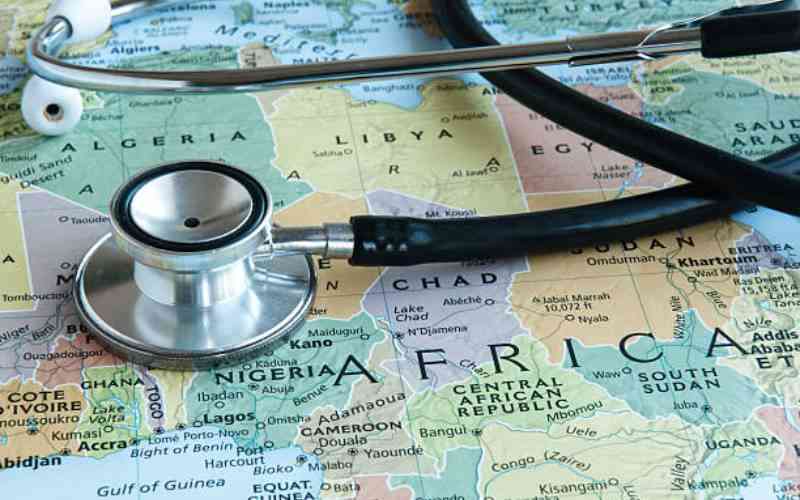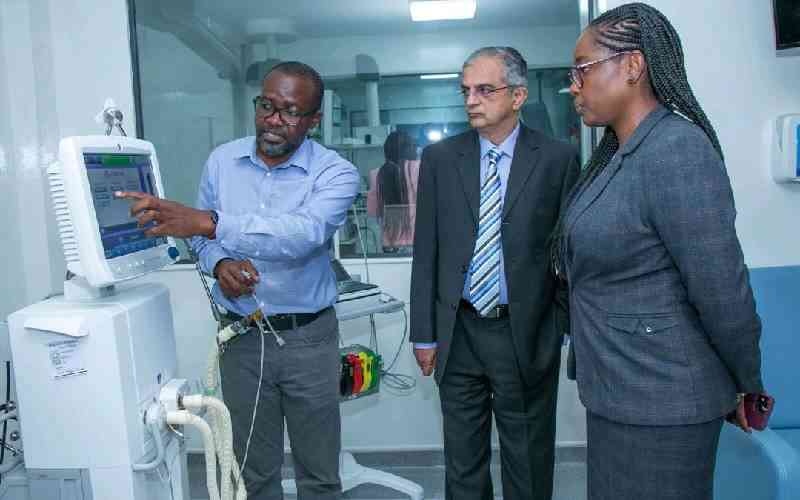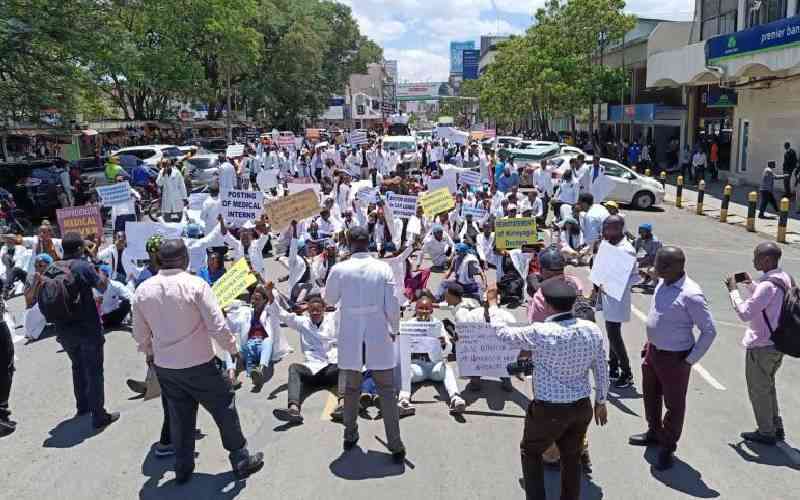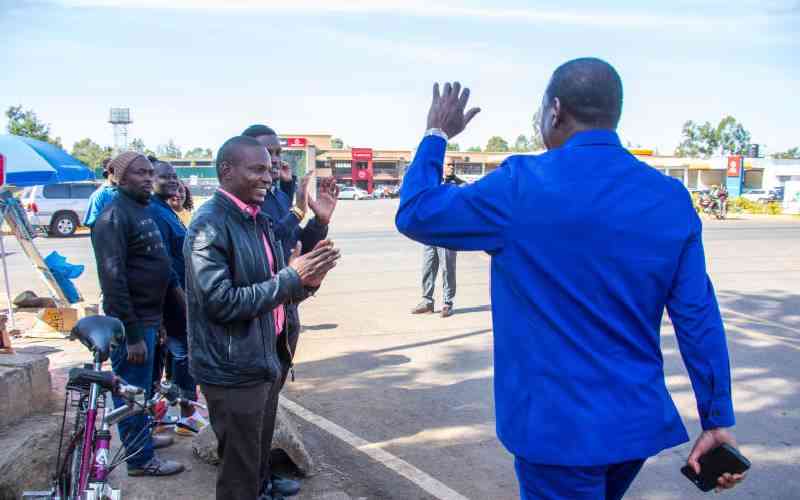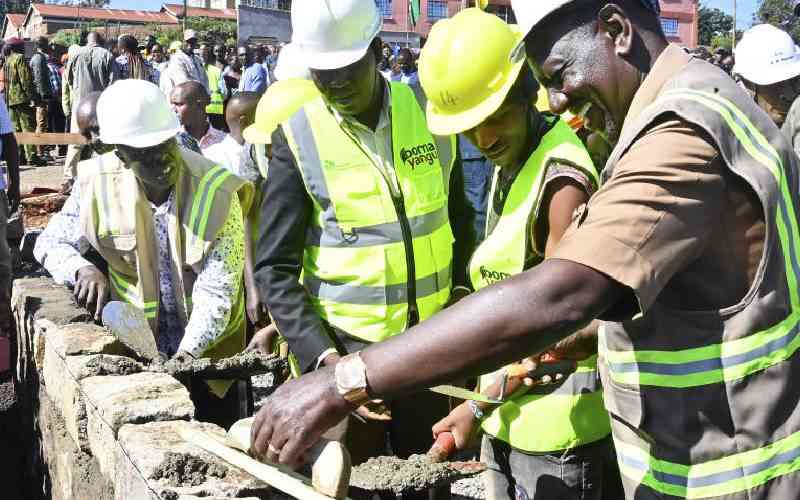Caring for the sick has for centuries been a common and noble practice in the Christian faith. In AD (Year of Our Lord) 259, the Christian community took care of Cyprian Plague victims in Alexandria, Egypt, with many losing their lives while caring for infected Egyptians.
The plague was named after early Christian writer St. Cyprian, Bishop of Carthage (modern Tunisia), who gave a clear narrative of the pandemic in a series of accounts.
The plague, which spread across Egypt and the rest of the Roman Empire, was so lethal and contagious that it claimed the lives of 5,000 victims in one day in Rome alone.
Frightened by the disease, many deserted those among them who were stricken. As the world wrestled with this and other conditions, the need for healthcare stood out. However, it was not until the nineteenth century that faith-based mission agencies began sending out doctors as missionaries across the world to deliver the much-needed healthcare.
These missionaries were over time able to establish Africa’s modern health systems and by the time most countries in the continent had achieved independence, faith-based health providers were responsible for a large number of modern medical services.
In Kenya alone, faith-based facilities provide healthcare services to more than 40 per cent of the population. Dr Jill Olivier, a Research Director for the International Religious Health Assets Programme at University of Cape Town’s School of Public Health and Family Medicine, indicates that the presence and operations of faith-based facilities differ among African countries.
For example, while South Africa nationalised most of its faith-based providers, Mali has a few such providers.
In Democratic Republic of Congo, Sierra Leone, Zimbabwe, Malawi, Rwanda, Uganda, Tanzania, Nigeria and Kenya, the faith-based market share is estimated at more than 30 percent.
In fact, Dr Olivier notes that in the last 10 years, there has been substantial interest in faith-based providers. Incidentally, faith-based organisations, such as Mission for Essential Drugs and Supplies, provide quality affordable and essential medicine and medical supplies to over 2, 200 facilities, some of them in very remote locations.
Most faith-based organisations have since lived up to their missions and provide a reliable supply of these medical items to facilities in Kenya, South Sudan, Ethiopia, Somalia, Democratic Republic of Congo, Malawi, Zimbabwe, Chad and Cameroon.
Faith groups have large networks that make distribution of drugs easier and also based on the huge supplies they deal with; they get drugs at bargain prices which end up benefiting end users.
To increase their bargaining power, faith-based organisations have come together in defined groups and thus are able to serve larger populations of people; driven by compassion as opposed to making profits.
More than 100 international development policy makers, academicians and leaders from religious organisations concur that faith-based and religious organisations contribute added value to health, education and disaster relief.
About 140 experts meeting at the Religion and sustainable development Forum: Building partnerships to end extreme poverty conference which was held in Washington D.C. USA in July 2015 agreed that there is compelling evidence to show the organisations are a critical cog in provision of health care services.
It is in this recognition that the World Bank Group is expanding its partnerships with faith-inspired organisations in Africa towards reaching their shared goal to end extreme poverty and improve health care delivery within a generation.
Stay informed. Subscribe to our newsletter
Given positive contribution made by the FBOs in the health sector, the need for governments to incorporate Public Private Partnerships in ensuring universal access to healthcare cannot be over-emphasised.
 The Standard Group Plc is a
multi-media organization with investments in media platforms spanning newspaper
print operations, television, radio broadcasting, digital and online services. The
Standard Group is recognized as a leading multi-media house in Kenya with a key
influence in matters of national and international interest.
The Standard Group Plc is a
multi-media organization with investments in media platforms spanning newspaper
print operations, television, radio broadcasting, digital and online services. The
Standard Group is recognized as a leading multi-media house in Kenya with a key
influence in matters of national and international interest.
 The Standard Group Plc is a
multi-media organization with investments in media platforms spanning newspaper
print operations, television, radio broadcasting, digital and online services. The
Standard Group is recognized as a leading multi-media house in Kenya with a key
influence in matters of national and international interest.
The Standard Group Plc is a
multi-media organization with investments in media platforms spanning newspaper
print operations, television, radio broadcasting, digital and online services. The
Standard Group is recognized as a leading multi-media house in Kenya with a key
influence in matters of national and international interest.

